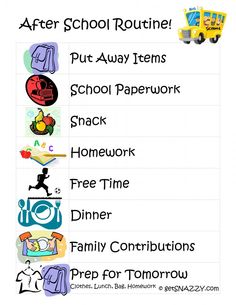
"Did you hear what I just said? Go and sort your school bag out!"
"How many times have I asked you to do this?"
"Why didn't you hand your homework in to your teacher today?"
Dealing with your child's selective hearing
Sound familiar? Why is that some children are attentive and obedient and others have to be nagged and reminded a dozen times? I'm not talking about kids who are wilfully defiant but those who can never quite remember the directions you gave them: 'In one ear and out the other'.In the early years of Primary School my son was nicknamed 'The Nutty Professor', so profound was his selective hearing and forgetfulness. "Line up with the boys," his teacher would say ... and off he'd go, following the wrong line to the girl's toilets. "Put your work books in your tidy tray and come and sit on the carpet" ... and he'd be the last person at his table happily cutting and sticking, oblivious to his class-mates sat waiting for a story at the other side of the room. Take-homes never made it home ... or even into his bag. Homework was completed but never handed in. Hats, lunchboxes and other personal items were frequently mislaid. 'Scatty' would have been a euphemism.
His teacher suggested I took him for a hearing test to check he didn't have an impairment that was affecting him in class. He failed the first one - not because there was anything wrong with his hearing but because he didn't follow the instructions.
Doctor (checking the headset in disbelief): Can you not hear anything?
My son: Not really.
Doctor: What do you mean, 'not really'?
My son: Well I can hear something but it doesn't really sound like a mosquito.
Doctor: It doesn't have to sound exactly like a mosquito, that was just the way I described it. You need to press the button if you can hear anything - anything at all. It sounds more like a beep or a note really. Let's have another go. Press the button if you hear anything at all.
(Silence. For a very long time)
Doctor: Did you not hear anything?
My son: Yes.
Doctor: Well why didn't you press the button?
My son: It was kind of quiet and it didn't sound like a beep or a note .
Aggghhhhhh!
He heard but he didn't listen.
If you have a child who appears not to hear or remember what you say, it is a good idea to get their hearing checked so you can rule that one out. Some kids, however, have great hearing but find it difficult to cope with the buzz of background noise and need help learning how to 'block it out'.
However, if you've ruled out both these things and your child still has trouble following directions, here are some strategies that may help.
Strategies for helping kids to follow instructions:
Make sure you have their attention
- Get eye contact (you may need to lower yourself down to their eye-level)
- Reduce background distractions, where possible (eg turn the TV off, find a quiet space)
Use a quiet, calm voice
Don't be tempted to raise your voice or shout above background noise. Make them listen carefully by keeping your voice low and gentle.
Be precise
Use short, exact phrases. Avoid asking questions like 'Would you ...", "Can you ...", "Would you like to ...". Tell them, don't ask: "Please put your bag away", not "Could you put your bag away?".
Pause
Wait four to seven seconds before repeating the instructions to allow them time to process what you've said. Children often take longer to process information than adults.
Ask if they understand
Get them to repeat the instructions back to you.
Paraphrase
Reword the instructions another way and repeat, if they did not understand the first time.
Simplify
Try breaking down instructions into one or two part directions.
Number directions
Give each part of the instructions a number to help them remember. Then check they've got it. Eg "OK, what three things do you have to ask your teacher today?"
Write it down
If your child is super-forgetful, get them to write a 'to do' list on a piece of card, in their journal/planner or even on a post-it note stuck to their schoolbag. The act of writing it down will also help them remember.
Use visual reminders
Use picture prompts and check-lists for younger children and to reinforce daily routines, eg getting ready for school, '5 things to do before bed'.
Does your child have trouble following instructions? What strategies have worked for you?











